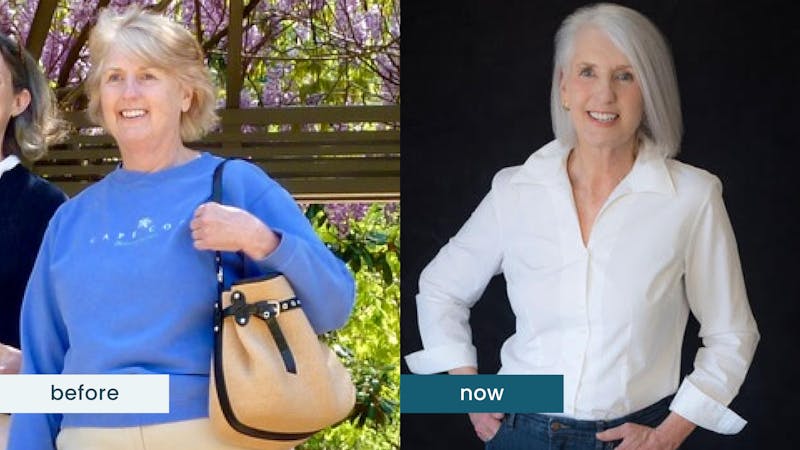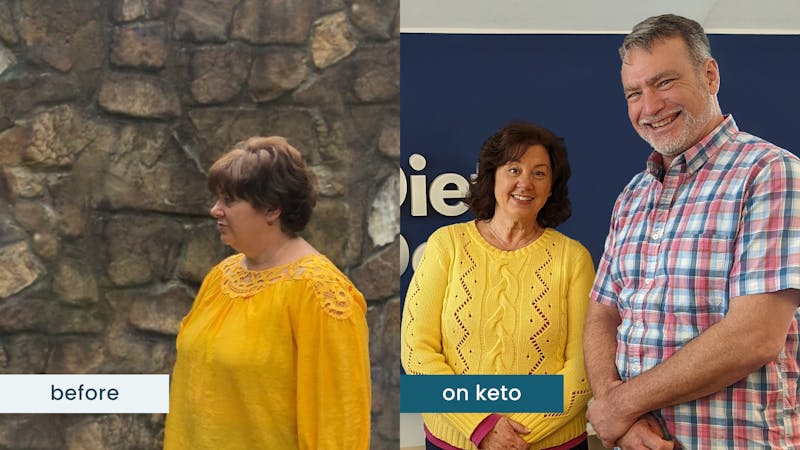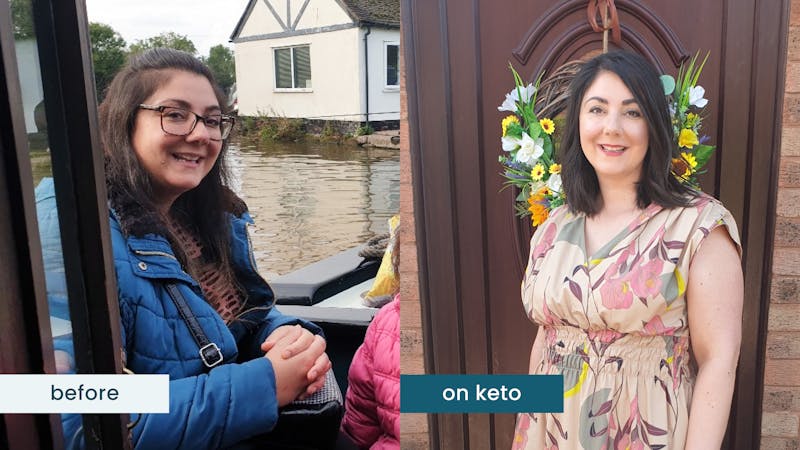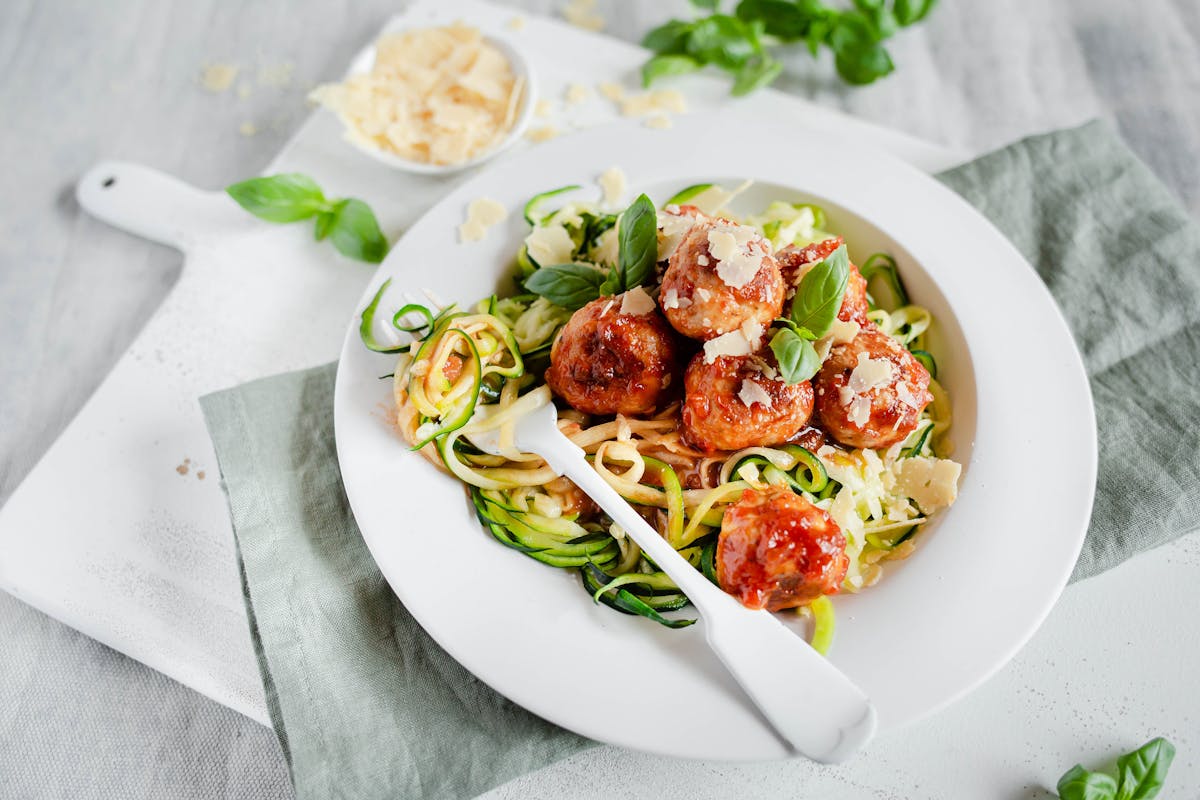From near immobility to a 100-pound weight loss
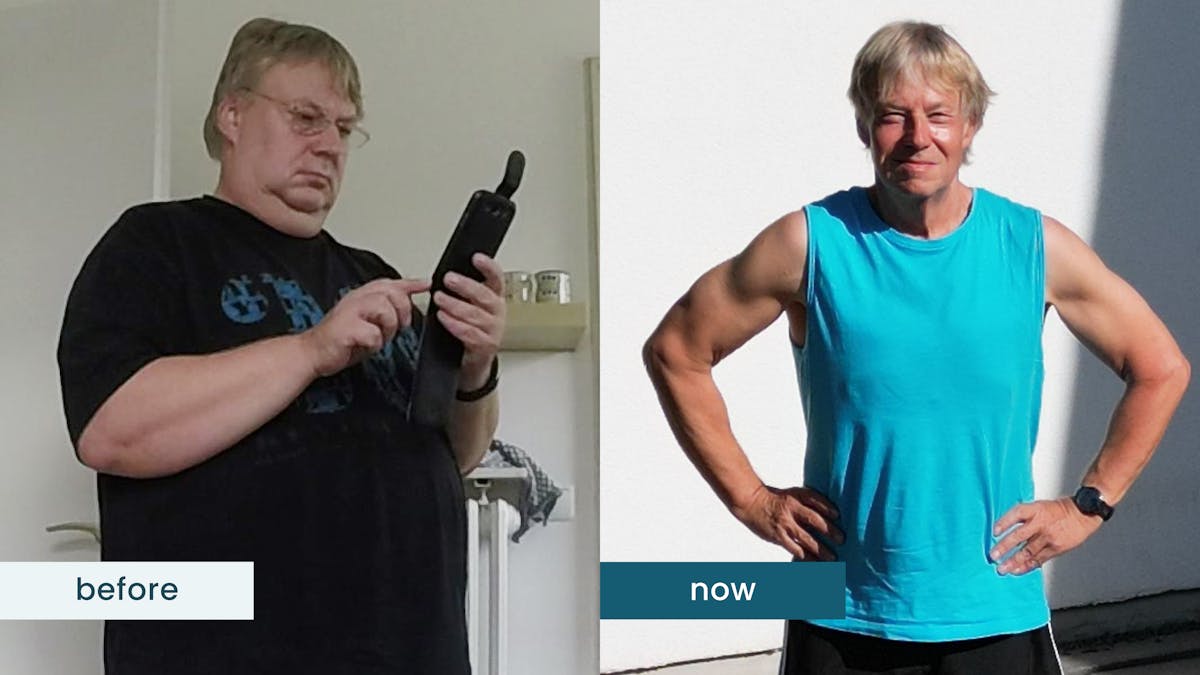
In 2014, Bernd realized he could no longer bend over to tie his shoes.
While he had struggled with his weight since childhood, after quitting smoking in 2008, he had steadily gained weight so that he was now 273 pounds (124 kilos) on a 5’5” (1.68 m) frame. That gave him a BMI of 44. His legs and joints hurt; his health was suffering.
He first tried eating less and exercising more, but after about a year, he had stalled, and he was constantly hungry. Then in 2015, he learned about low carb, high fat (LCHF) diets, eventually finding Diet Doctor. The rest is history!
Over the last seven years, he has constantly adjusted and improved his diet. By 2019 he reduced the amount of fat he was eating and increased the protein. He added in regular weight lifting. In all, he has lost 110 pounds (50 kilos). He now weighs 165 lbs (75 kilos) with a healthy, muscular BMI of 25.
“I am a completely different person now. I went from being unable to bend down to tie my shoes to a person who regularly deadlifts [220 pounds or] 100 kilos,” said Bernd.
Here is his story.
What is your name, your age, and where do you live?
I’m Bernd, 61, and I live in Heikendorf near Kiel in Germany.
How did you discover keto or low carb?
In 2014, I decided I had to lose weight. I was morbidly obese. So I tried for about a year to lose weight by eating less and exercising more. For the first while, every diet works, but then it stops working. So at first, I lost some weight, but then I stalled and couldn’t lose any further. And I never felt satisfied; I was always hungry.
So I was searching for other possibilities. I came across postings on Facebook about “LCHF,” which was low carb, high fat, the previous name for keto.The first book I read was in German. It was Entpuppt (which means “exposed”) by Annika Brettfeld Rask. Then I read books by Diet Doctor founder Dr. Andreas Eenfeldt and contributor Dr. Jason Fung. That’s how I found Diet Doctor and the LCHF or keto diet.
Did you have weight or health problems before changing your lifestyle?
I have had weight problems since childhood.
After I quit smoking in 2008, I gained a lot of weight. It’s unbelievable how fat I got in a very short time.
My weight rose to an incredible 273 pounds (124 kilos). Since I am 5’5” (1.68 m), that corresponded to a BMI of 44, which is morbidly obese.
My doctors also told me I had metabolic syndrome, as my blood pressure and blood sugar were also elevated. My heart was beating fast, and my pulse was hardly under 90, even during periods of rest. My legs were swelling, and I had water accumulating in my legs. I also had pain in my knees and legs in general.
I realized that I had to do something when I could no longer bend to tie my shoes. I could not go on like that. It took me a year before I could tie my shoes.
What did you eat before the lifestyle change to keto?
I ate a lot of processed convenience foods, such as frozen pizza and microwave burgers.
I ate a lot of bread, potatoes, and pasta.
I ate a lot of processed meats and sweets like chocolate and ice cream.
I ate very few vegetables or greens. I drank a lot of beer and other alcohol.
I decided to start the LCHF diet on October 31, 2015 (Halloween). I also decided on that day that I would stop drinking beer and alcohol. I have not had an alcoholic drink since.
How has your weight and health improved?
I am a completely different person now. I went from not being able to bend down to tie my shoes to a person who regularly deadlifts 212 pounds (100 kilos). I love lifting weights.
I have lost a total of 110 pounds (50 kilos), my BMI is a healthy 25, and I now have a lot of muscle.
I have no more pain in my legs or knees and can move easily. My legs no longer swell. My blood pressure and blood sugar (HbA1c) are in the normal range, and my resting heart rate is less than 70.
I remember very distinctly waking up one morning in the summer of 2016, about 10 months after I started keto, and realizing I felt fantastic. I had no pain in my legs — no aches at all — and my brain felt clear. It was as if the whole world had opened up. It was a completely different feeling. I thought, “I can do everything.” I checked my ketones, and I was in ketosis, which felt great.
What does a typical eating or fasting day look like now?
I usually don’t eat until 12:00 noon. My favorite first meal of the day is an omelet with three to four eggs, some smoked salmon, onion, mushrooms, and peppers.
On some days, I’ll eat some yogurt with whey protein and berries in the afternoon.
In the evening, around 6:00 pm, I eat vegetables with meat or fish. When I started LCHF, it was the fact that I could eat meat that really interested me. But lately, I find I am eating more vegetables and less meat — but better quality meat.
I buy my beef, pork, and poultry from local farmers at a nearby farmers’ market. These are sourced from farms with happy animals who have had good lives. It’s more expensive but very delicious, and the cost is worth it because I’m choosing quality over quantity.
It’s amazing to me that before keto, I hardly ate any vegetables. Now I love them.
After dinner, I may have a high protein snack of cottage cheese with whey protein and a few nuts. I really love that.
Twice a week, I fast for about 20 to 24 hours. I track all my food in MyFitnessPal.
A few times each month, I eat out with friends. I used to be very strict, saying, “No, I don’t eat this or that.” But now I am more flexible. I just get back to my way of eating the next day.
Two weeks ago, I was at a good friend’s birthday party, and I ate everything, even some of the cake. It was no problem. Afterward, I did not have more cravings, and I just went back to my regular routine.
Have you learned from any mistakes on your journey?
By 2018, I was eating too much fat. In 2019, I reduced the fat and increased the protein. I should have done this earlier, as it is good for building muscle. Soon after I began eating more protein, Diet Doctor began recommending more protein, too, so I felt I was on the right track.
I have also learned to accept myself and love myself over the past seven years. I used to feel that being fat made me inferior to other people — that naturally slim people were inherently better than me.
I used to think I was not so good. I thought this way almost my whole life. I have learned to not think like that. Slim doesn’t automatically mean better, smarter, or healthier.I have also learned to constantly tweak and improve what I am doing, both in what I eat and in my exercise and workouts. You have to always adjust and keep growing and improving.
In my job, I’m a manufacturing engineer with a specialty in process optimization and continuous quality improvement. And I now apply continuous quality improvement and process optimization to my lifestyle. I have spreadsheets, track things, and make changes if they are not working.
Do you think exercise is necessary to be successful with a low carb diet?
When I was obese, I couldn’t exercise. I couldn’t get up off the floor.
The diet helped me lose weight, but exercise made me feel great. Now I love to exercise. I really love lifting weights. I train with weights up to five times a week.
Building a good musculature helped me a lot. I feel absolutely fit and healthy. I also enjoy riding my e-bike a lot. Also, this summer, I am swimming in the Baltic Sea. I never used to do that. I had not gone swimming for years.
What are your three tips for low carb beginners?
- It’s never too late. Start today.
- It’s not the destination; it’s the journey. Enjoy the journey. Set yourself SMART goals (which are Specific, Measureable, Achievable, Realistic, and Timely). That means something specific you can see yourself doing today.
- Never think you can’t do something before you’ve tried it. This applies, for example, to fasting or weightlifting. Just try it.
Final thoughts?
You will have ups and downs. During the pandemic, like lots of people, I gained weight. I was working from home, no longer walking the 10,000+ steps to work as I had been before. Food was close by in my kitchen, so I gained back nearly 20 pounds (8.5 kilos). So I had to refocus, and now I have lost that 20 pounds. Life happens; you will always have to be adjusting.
But I hope to inspire people. As I said, it’s never too late.
Thank you for the great inspiration Bernd. We love your advice to look for ways to optimize your diet through continuous quality improvement. We agree! Advice and routines should never stay static but should change and adapt to your changing needs and information. That’s what we mean by personalizing our diet advice to your specific needs.
~ Anne Mullens
Share your story
Want to share YOUR success story with Diet Doctor? Send an email to success@dietdoctor.com. Feel free to use the questions on this page as a starting point.
Share your story